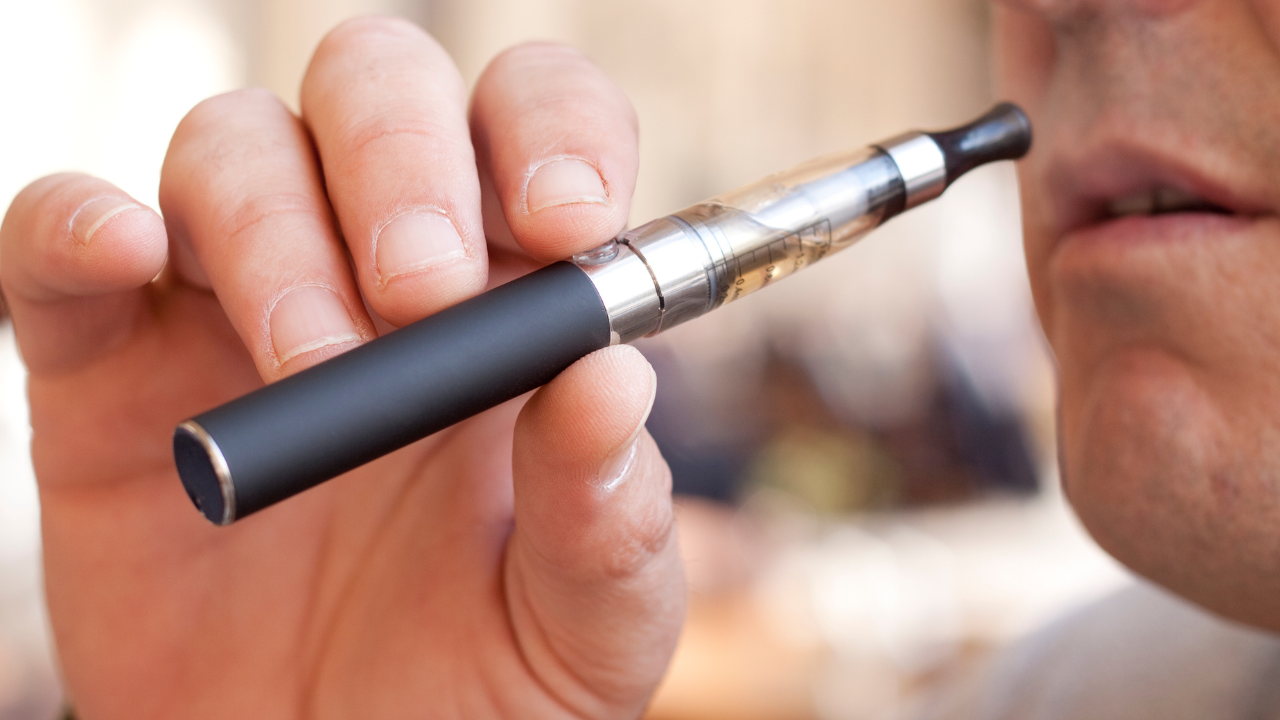
Published: 27 March 2024
Giving out free e-cigarette starter packs to smokers in hospital A&E departments helps more people quit, NIHR-funded research finds.
Academics from the University of East Anglia conducted a trial in 6 UK emergency departments between January and August 2022. The study’s results have published in the Emergency Medicine Journal.
The research team hopes the initiative will be rolled out to hospitals nation-wide. They say it could result in more than 22,000 extra people quitting smoking each year.
A total of 972 smokers took part, all of whom attended A&E for any reason. They were randomly assigned to receive either smoking advice, an e-cigarette starter pack and referral to local stop smoking services - or just ‘usual care’ written information about locally available stop smoking services.
Both groups of patients were asked if they were still smoking 1, 3 and 6 months after they attended hospital. Those who reported quitting after 6 months were asked to undergo a carbon monoxide breath test.
Researchers found:
- Six months later, almost 1 in 4 people given the starter packs said they had quit smoking. It also showed that people were twice as likely to quit smoking having received the intervention than not.
- People were twice as likely to quit smoking having received the intervention than not.
- Those who received the packs but didn’t quit altogether, were more likely to have reduced the number of cigarettes they smoked.
Dr Ian Pope, from UEA’s Norwich Medical School, and an emergency physician, said: “Emergency departments in England see more than 24 million people each year of whom around a quarter are current smokers.
“Attending the emergency department offers a valuable opportunity for people to be supported to quit smoking, which will improve their chances of recovery from whatever has brought them to hospital, and also prevent future illness.
“Smoking killed almost 75,000 people in the UK in 2019 and it is the leading cause of preventable death and disease in the UK.
“Swapping to e-cigarettes could save thousands of lives. We believe that if this intervention was widely implemented it could result in more than 22,000 extra people quitting smoking each year.”
Trial co-lead Prof Caitlin Notley, also from UEA’s Norwich Medical School, said: “Many people who smoke want to quit, but find it difficult to succeed in the long term.
“Electronic cigarettes mimic the experience of cigarette smoking because they are hand-held and generate a smoke-like vapour when used. They can be an attractive option for helping people switch from smoking, even if they have tried and failed in the past.
“We know that they are much less harmful than smoking tobacco, and that they have been shown to help smokers quit.
“About half of all people who smoke will die prematurely, losing on average 10 years of life, and for every death caused by smoking, approximately 30 more people are suffering from a smoking-related disease.
“Smoking-related cancers, respiratory and cardiovascular diseases severely impact people’s quality of life as they get older and are a huge cost burden for the NHS.”
The ‘Cessation of Smoking Trial in the Emergency Department (COSTED) study was funded by NIHR’s Health Technology Assessment (HTA) Programme. It was run by the Norwich Clinical Trials Unit at UEA.
As this was only a trial, people who smoke are reminded that A&E departments are not currently handing out free vapes. Help to stop smoking is available on the NHS website.
Read more about the CoSTED study on the trial’s project page.

